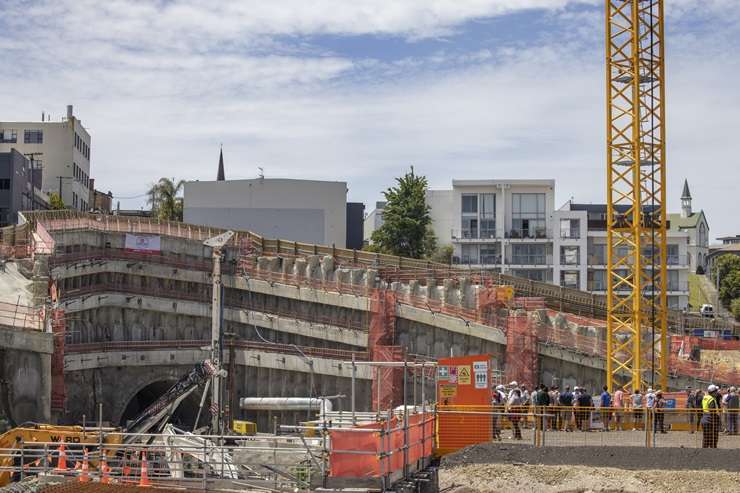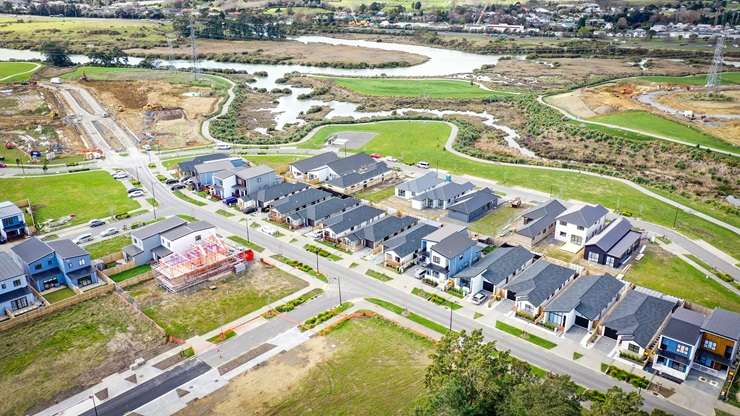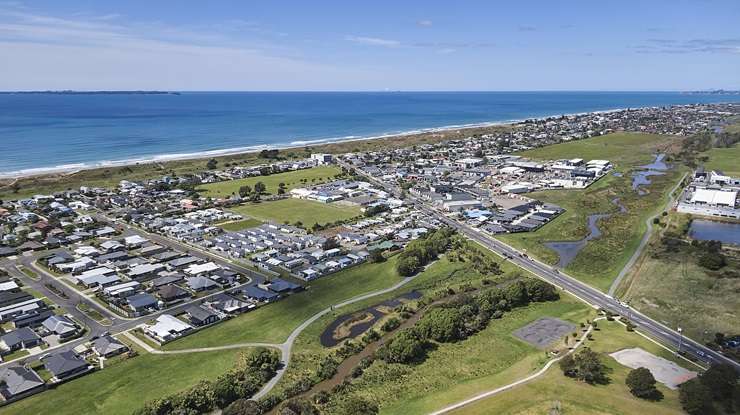Whether buying for the heartstrings or for financial gains over time, making a choice on the when, where and how much of a purchase is a big decision. OneRoof asked some housing commentators what they would do and where they would do it.
Wayne Shum, senior research analyst at OneRoof’s data partner Valocity
Shum said affordability will be a big driver this year, leading first-home buyers to more affordable suburbs in urban centres.
In Auckland, there is still a clutch of suburbs with a good stock of properties in the $800,000 to $900,000 price range. These include Ōtāhuhu and Pukekohe, in the city’s south; New Lynn, Massey and Glendene, in the city’s western belt; and Wainui, on the northern fringe, near Orewa.
Start your property search
Most have good commuter links into the city, either by rail or by bus.
Read more:
- $9m house sale in Auckland’s most overlooked suburb
- Beach mansion that’s never been lived in could be record-breaker
- Tony Alexander: Three factors that will push up house prices in 2024
Eden Terrace is another one to watch, said Shum. The suburb, which is sandwiched between the CBD and the wealthy neighbourhood of Mount Eden, is home to a mix of apartments and townhouses and has an average property value of $800,000.
The suburb is set to benefit from the City Rail Link project, which will cut commuter times into the city and likely turn the suburb into a desirable and amenity-rich hub.
Shum thinks the flight to affordability outside of Auckland has largely already happened, although lower prices in Christchurch and Hamilton are still a magnet to first-home buyers who have been squeezed out of the market in country’s biggest city.
James Wilson, operations manager for Quotable Value
If buying in Auckland, Wilson suggests looking up Auckland Council’s 30-year plan and examining growth corridors.
One of the biggest is Drury to the south, a semi-rural part of the city undergoing huge change. Wilson said Drury is destined to become as big as Manukau but master-planned, which means as the city is built facilities and infrastructure are also built.
“There’s all sorts going on there. Industrial development, there will be commercial development, there's going to be a big shopping mall, there's schools.

Construction on the City Rail Link in Auckland's Eden Terrace. The infrastructure project will boost buyer demand in the suburb. Photo / Peter Meecham
“There are already new builds popping up but there are a lot more planned and if you’re looking at the next five to 10 years it’s going to become almost unrecognisable in terms of what that location will offer.”
In April last year, the New Zealand Herald reported the council approved a plan to collect $1.1 billion from developers in Drury over 30 years with the money expected to go towards $2.3bn of infrastructure costs.
Wilson favours developing areas like Drury as good buying for longer-term gain over areas where a lot of the buying and reselling has already been done over the last five years, such as big parts of Botany Park or Ellerslie further to the centre.
Drury, Clevedon and Papakura will all have developments coming on stream during the year, he said.
“When they come to market, all of a sudden you’ve got a whole new type of housing, so new build, coming to the market and a location where they haven’t had that kind of stock before.
“If people get in early, what will follow the new builds is things like new services, shops and schools, and for Drury as an example, train stations and all sorts of employment, so those are the areas you’re going to see big change to the locations in general.”
The rapid physical change will be reflected in value profiles, Wilson said.

An aerial view of a subdivision in Drury, in Auckland's southern fringe. Photo / Chris Tarpey

QV operations manager James Wilson says buyers should look at long-term development plans. Photo / Fiona Goodall
He also said after the excitement and subsequent flattening of the housing in market in recent times, people should return to thinking about the fundamentals.
“Where is the city going to be growing into? What does the 30-year master plan for Auckland look like and what’s available to purchase in those locations?”
The country village of Clevedon, for example, is undergoing a lot of change which will open it up to new types of buyers.
“Suddenly you’ve got what was always a tightly-held, higher-end lifestyle location getting new property types into it.”
Wilson’s next pick is Hamilton and the wider Waikato where there has been a lot of growth and where there are still big tracts of new builds coming.
The new highway has been open for a while but it has taken the market some time to work out what that means in terms which areas have been opened up for development.
“There’s a lot of land that’s been opened up on the fringe.”
Motorways, transport links and growth corridors are important for property value, Wilson said, citing Warkworth to the north of the city where the new motorway has shaved time off the travel distance resulting in a mindset shift with people now thinking they can live there and still work in Auckland.
Kelvin Davidson, chief economist for CoreLogic
Davidson points out he is not giving advice but does think over the next few years larger cities could see faster house price growth than smaller areas.
“First, net migration is strong, and that seems to be heading in the direction of Auckland and Christchurch, maybe Wellington, too.
“Second, some of these key centres have seen large drops in prices – especially Auckland and Wellington – so could now be poised for a bit of ‘catch up’ growth.
“I’m not convinced that any city vs province differences will be huge, though, because for now at least, we’ve still got high mortgage rates, and that’s a hurdle for price growth everywhere.”
Shane Cortese, Harcourts national auction manager
Papamoa is his top pick. Cortese selected the coastal suburb of Tauranga purely for reasons of the heart, which he said is more important than price growth or any other reason.
People are always looking for a great escape, or for cheap property, but they have to have a reason to go there, “because sometimes we see things through holiday eyes” and a location that looks like a great place to go might be quite different on a day-to-day basis.
“If you’re going to find another place just to get on the market you’ve really got to have a reason to go there and a raison d’etre to purchase there and purchase well.”

Prices in beachside Papamoa, in Tauranga, can range from $800,000 to $6m. Photo / George Novak
Which brings him to Papamoa: “I can say quite clearly now to me being a Tauranga boy and the way Papamoa is close to my favourite beach. If I was going to do it I’d be looking to go to Papamoa.”
Cortese said properties on Papamoa Beach are pretty pricey, selling for $5m or $6m, but there are still good opportunities to get into the suburb for $800,000 to $1m.
Whether to buy there, though, will always depend on personal viewpoint, he said.
“The shopping centres are phenomenal and the local entertainers that play in the pubs on a Sunday afternoon at 3pm when the sun’s coming in and you’ve got salt on your skin are great – or you can say, ‘oh, it’s too busy’.”
- Click here to find more properties for sale


















































































